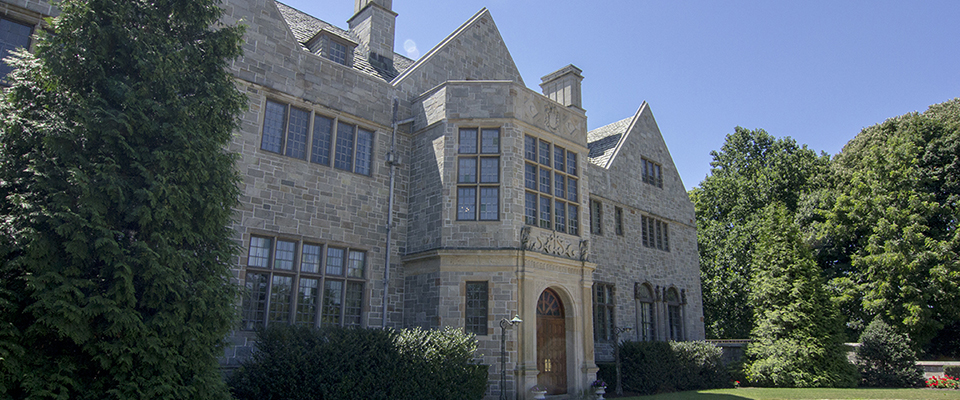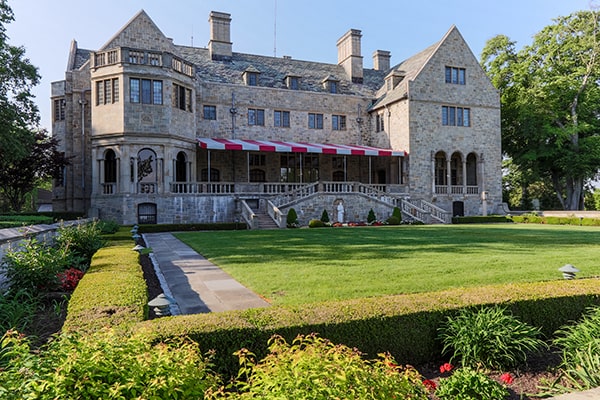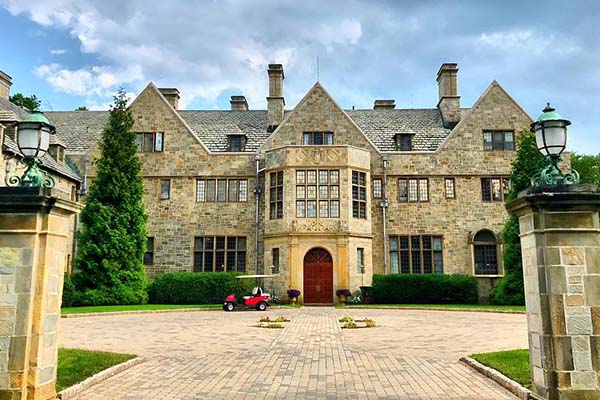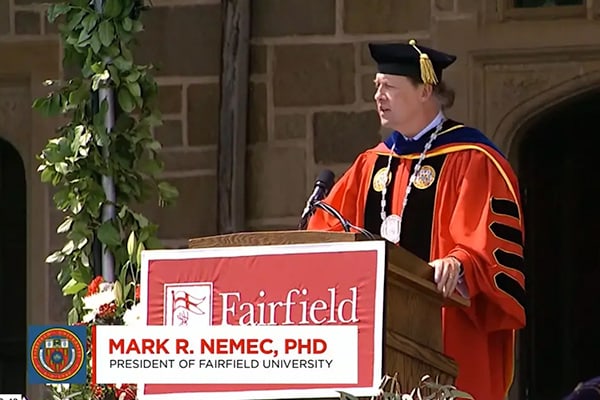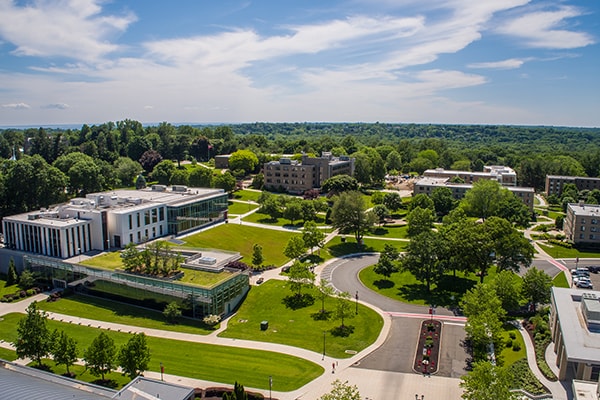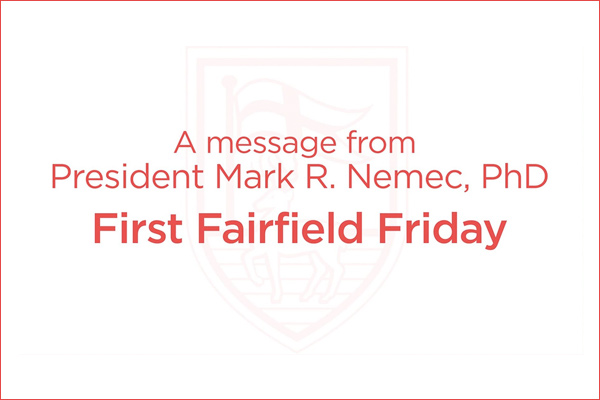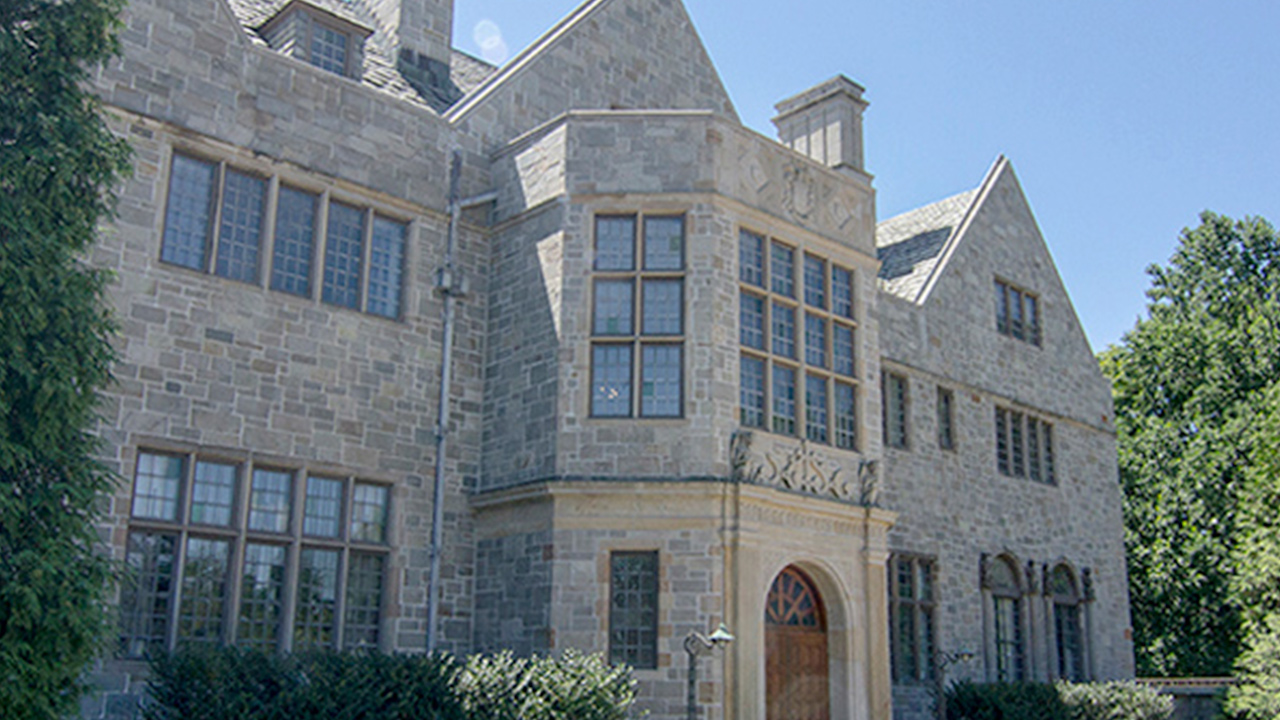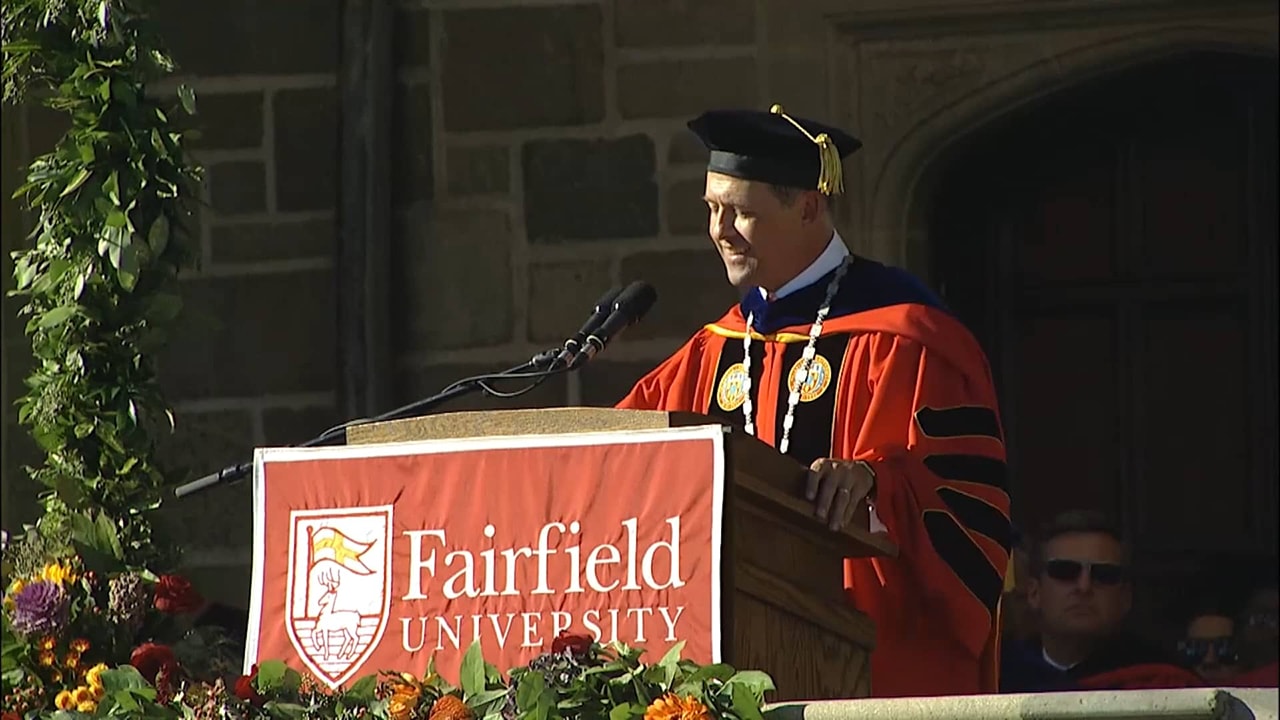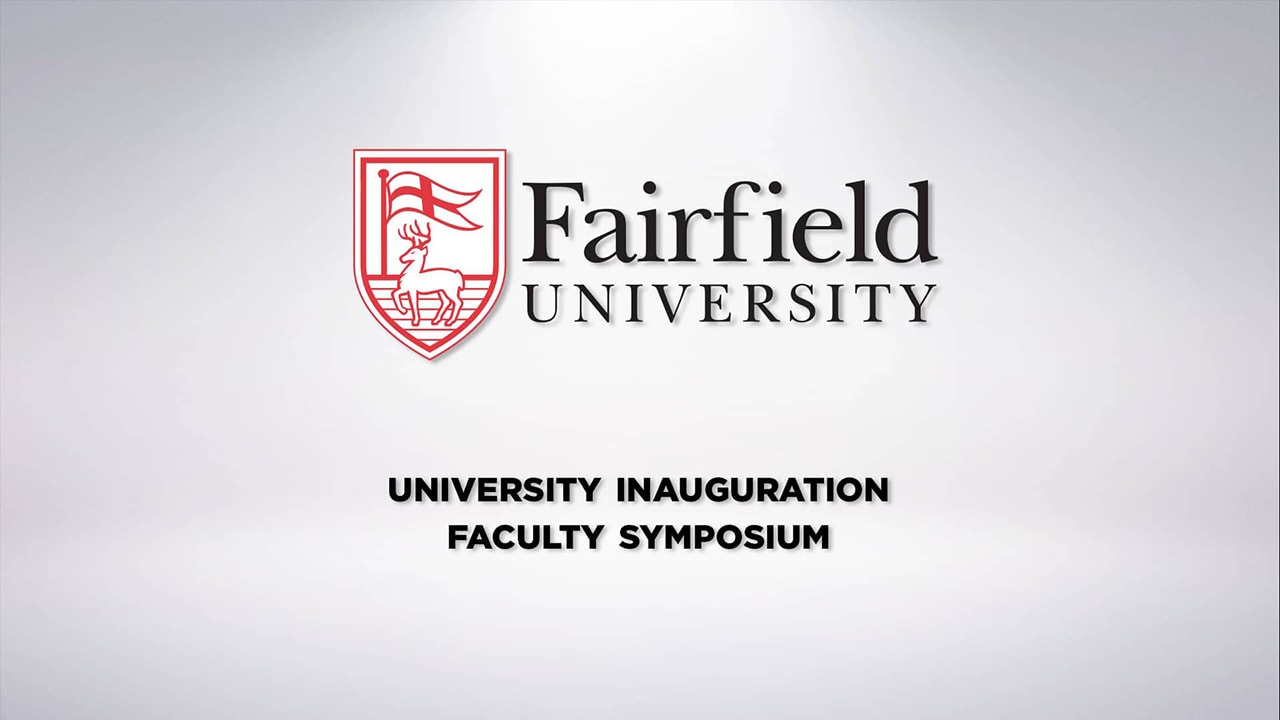On This Page
Biography
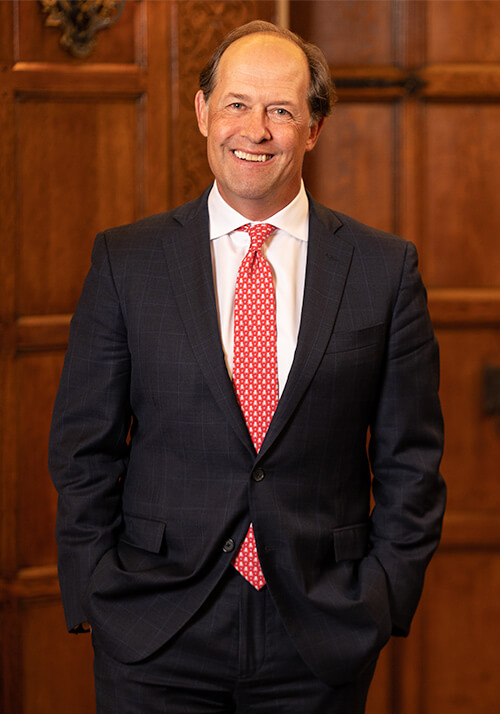
Mark R. Nemec, PhD
President
On July 1, 2017 Mark R. Nemec, PhD, became the 9th Ignatian and first lay President of Fairfield University.
Working with his senior leadership team, constituents across campus, and the University’s alumni and civic communities, President Nemec has positioned Fairfield to be a modern, Jesuit Catholic University of national prominence — committed to lifelong learning, holistic formation, and expansive partnership while instantiating academic excellence, fostering comprehensive achievement, and advancing educational access.
Under President Nemec’s leadership, Fairfield has renewed its commitment to the nearly 500-year-old traditions of Jesuit pedagogy, with an emphasis on care for the whole student, and a broad-based liberal arts and sciences foundation. This values-based, student-centric, outcomes-focused approach is designed to form men and women who will live and work for and with others, in pursuit of societal stewardship and productive citizenship.
At the same time, he has led the University through a course of expansion and innovation designed to meet the challenges of the 21st century, and has expanded the University’s reach to learners of all ages, emphasizing: innovation in teaching methods, embracement of the potential of big data and emerging technologies, the launch of new graduate and professional programs designed to meet the needs of today’s students, and the fostering of industry and community partnerships to strengthen the University’s reputation as a leader in contemporary higher education.
In particular, since 2018 Fairfield has launched successful online graduate programs in business, nursing, education, engineering and the arts and social sciences to complement its on-campus programs. In addition, Fairfield has expanded to provide business graduate programs to students in China and India, and recently opened a satellite campus in Austin, Texas to provide graduate nursing programs to meet a regional nursing shortage in that area.
Under Dr. Nemec’s stewardship, the University’s Ignatian commitment to provide access to education to traditionally underserved communities has also expanded. In addition to significantly increasing need-based financial aid, the University’s Company Scholars program offers full funding and enhanced programing to a select first-generation, Jesuit high school and Cristo Rey graduates. And in partnership with the Diocese of Bridgeport Fairfield has established Fairfield Bellarmine, a campus in Bridgeport that offers no-cost associate’s degree program for traditionally underserved high school graduates, offering a pathway to a four-year degree.
President Nemec also led the largest capital campaign in University history, exceeding an original goal of $160 million to raise a total of $218 million to benefit the University. The fulfilment of a University master plan to enhance the campus environment under his stewardship has brought new facilities and enhanced technological infrastructure, and has included the completion of the Charles F. Dolan School of Business facility, the School of Engineering and Computing Innovation Annex, the Barnyard Townhouses and the Leo D. Mahoney Arena amongst others.
A graduate of Loyola High School, Jesuit College Preparatory in Los Angeles, President Nemec earned a BA in English from Yale, where he was an All-Ivy League rugby player. He received an MA in education and a PhD in political science from the University of Michigan. Early in his career, he taught American politics as a visiting assistant professor at Davidson College, and as an instructor at the University of Michigan.
Prior to joining Fairfield, Dr. Nemec served as the dean of the Graham School of Continuing Liberal and Professional Studies at the University of Chicago. Before joining the University of Chicago, Dr. Nemec served as president and chief executive officer of Eduventures, a Boston-based information services firm providing research and advice to the higher education community. He previously had been a member of the executive team of Forrester Research, a provider of similar services to the technology industry.
Dr. Nemec is the author of Ivory Towers and Nationalist Minds: Universities, Leadership, and the Development of the American State (University of Michigan Press, 2006), and a contributor to The Educational Legacy of Woodrow Wilson (University of Virginia Press, 2012).
Beyond his research on the role of higher education in American political development, Dr. Nemec has been a frequent speaker on the current and future state of higher education and has presented to a diverse array of audiences including the White House’s Forum on College Affordability, the British Council’s Going Global, the New England Board of Higher Education’s Summit on Cost in Higher Education, and the annual meetings of numerous higher education associations.
Dr. Nemec serves as Chair of the Connecticut Conference of Independent Colleges and Vice Chair of the Metro Atlantic Athletic Conference (MAAC) Council of Presidents. He also serves on the Educational Resources Committee of Loyola High School, and is a fellow of Timothy Dwight College of Yale University. For his and the university’s commitment to educational access, he has been honored with Brooklyn Jesuit Prep’s Sister Thea Bowman Award, Cristo Rey New York’s Ensuring our Future Award as well as the Archdiocese of Bridgeport’s Foundations in Education Award.
Dr. Nemec was welcomed into the Fairfield community with his wife, Suzanne, and their four children: Alex, Teddy, Philip and Kit. In addition to his role as President of Fairfield University, Dr. Nemec also joined the politics department as a professor within the College of Arts and Sciences.
Communications from the Office of the President
2022 First Fairfield Friday Address
Mark R. Nemec, PhD
(September 9, 2022)

Fairfield Faculty, Staff, and Jesuit Community, or may I say, Companions,
Late good morning to you all and welcome. As we do in all things Ignatian, I would like to begin with gratitude.
Thank you for making the time to be with us. More importantly, thank you for all you have done as faculty, staff, and colleagues over the last two and a half years as we have faced a myriad of challenges and disruptions. As I shared in my remarks to the general faculty at the end of last academic year, Fairfield has never been stronger, never been better positioned to educate children of God as individuals of purpose, and that is thanks to all your effort and your dedication to our collective enterprise and shared endeavor.
My remarks today are not a state of the union. As has been our tradition, my purpose with these remarks is to have us look forward and thus I will spend the majority of our time discussing our long-term vision and the institution we are called to be. Where we are going and how we work together to get there.
I do think, however, it is important to spend just a moment highlighting where we are—the position from which we go forth to answer our call. Just this past Saturday we welcomed our largest and (on the incoming metrics) most academically qualified class ever: 1,342 students. For perspective, just five years ago we welcomed less than a thousand (993). We also did so while continuing to advance our selectivity. With this year’s class we are now the seventh most selective Catholic university. (Georgetown, Notre Dame, Boston College, Villanova, Holy Cross, and Loyola Marymount are the six institutions more selective than us.)
Again, to put this in historical perspective, with the students who arrived in the fall of 2017 we placed 50th (five zero) amongst our Catholic peers. I want to be clear: selectivity is not an end for us. Our progress here, however, is one very representative data point reflecting how students, parents, and counselors appreciate your efforts and understand the merits of our value-based, student-centric, outcomes-focused approach, and the quality of the education and formation that we as community deliver.
At a time when the “value of a college degree” is under ever greater scrutiny, our approach and our quality serve as a strong response to those who question a liberal arts education. This question of the value of a college degree is one that has long been discussed but until recently was thought too hard to quantify. We have known anecdotally a Fairfield degree was valuable, and thanks to our colleagues at the Center for Education and the Workforce (CEW) at Georgetown University we have continued confirmation of that value. Just recently, CEW published an update to their original 2019 study—an analysis of more than 4,500 postsecondary educational institutions across a variety of metrics over a 40-year period, as this is considered the most comprehensive benchmark for judging value. Fairfield did exceptionally well, improving on already high marks, ranking amongst the top 35 of all private universities in the country, fourth amongst Jesuit colleges and universities, and second to only Yale here in Connecticut. I would stress rankings and outside measures are not what we seek. However, it is affirming when others take notice of our programs and our outcomes. When they recognize our unique dedication to forming students so they may pursue societal stewardship and productive citizenship.
I would be remiss if I did not mention we are seeing similar resonance with our graduate and professional programs and begin the year with total University enrollment of just over 6,000 individual students entrusting their education, their formation, to us.
Thus, it is from this position of exceptional growth and academic strength that we find ourselves called to be a doctoral professional university of national prominence. I would pause to note this positioning of Fairfield is not merely a matter of rhetoric. Rather it is a reflection of our ongoing commitment to lifelong learning and specifically our innovation in our graduate programs which has resulted in our shift in category from regional master’s comprehensive to national doctoral professional university by the Carnegie Classifications of Higher Education this past winter.
So again, allow me to offer my most heartfelt thanks for all you have done to bring us to this point.
At the same time, allow me to collectively challenge us by saying we are called to do so much more. We are called to fulfill our shared vocation as a doctoral professional university of national prominence. We are called to be the next great Jesuit, Catholic university. While this is admittedly ambitious, as Professors Kurt Schlichting and Paul Lakeland note in their forthcoming history, throughout our relatively short saga—we just celebrated the 80th anniversary of our founding—Fairfield University has been marked by audacity. An audacity undergirded by the utmost faith in our Ignatian values, a tireless commitment to innovate our educational model, and a deep appreciation of the blessings of our location here on the Connecticut shores of the Long Island Sound.
As one whose own academic work has focused on the societal role of higher education and whose work has been characterized as being that of a “historically minded political scientist,” I would ask us to consider just how exceptional our location is, from a historical perspective. This Acela corridor—the geography between roughly Washington, D.C. and Boston—is home to arguably the greatest collection of intellectual, cultural, and financial capital the world has ever seen. We at Fairfield are right in the midst of it, and are called to do more with such a gift.
Our call to be a Jesuit, Catholic university of national prominence is not about being different than we have been, rather it is about continuing to embody the magis and doing greater in regards to quality not quantity. It is about meeting the needs of the 21st century through reinvention and renewal. And specifically, it is characterized by a series of initiatives, the contours and activities of which I have shared in previous remarks, but which have crystalized into three specific guideposts for the coming seven to ten years:
- instantiating academic excellence,
- fostering comprehensive achievement, and
- advancing educational access and opportunity.
I will not attempt to catalogue all we are doing in each of these areas but allow me to briefly touch upon each of these in turn.
First, academic excellence is the foundation of our journey to national prominence. I have spoken to you about our continued work to evolve and innovate our academic programs. Work which builds upon our core curriculum and its learning objectives dedicated to insuring all our undergraduates fully develop the capacity to communicate, the capacity to think across fields of study, and the capacity to think of and with others. I have also spoken about our work leveraging our investments in big data and engineering, in industry partnerships and digital media, and in educating ever broader populations in ever more innovative ways through online modalities and geographic expansion in particularized fields. This work has already borne significant fruit including new faculty hires, new degree programs, new and renovated academic spaces, and our first degree-recipients from a fully online course of study. Additionally, I am pleased to announce we have just recently submitted to the New England Commission of Higher Education, our substantive change request to offer our second-degree nursing program in Austin, Tex., having received preliminary approval from the requisite state agencies.
Second, our dedication to fostering achievement stems from our desire to develop our students so that they fulfill their full potential. Our commitment to cura personalis and holistic formation means our path to national prominence does not end at the classroom as we refine residential life with ever greater emphasis on living-learning environments, collaborative workspaces, and overall health and well-being. Additionally, as a civic institution we celebrate achievement in the arts, culture, and athletics. The return to pre-Covid protocols and the further development of the work done by the Provost’s Task Force on Arts & Culture means we are looking forward to an exceptional year of events, and planning for robust and enriching programming going forward. Finally, the soon-to-be completed Arena will offer not just a first-rate competitive home for our men’s and women’s basketball and volleyball teams, but also an exceptional venue for us to gather and host all types of events as a community. I encourage each and every one of you to pay a visit this academic year. We begin competition in the facility with our women’s basketball team opening their home season on Friday, November 18; the men’s opening game is Saturday, December 3.
Finally, to be a university of national prominence we must continue to advance access and opportunity. Fairfield was founded to ensure that first-generation immigrants of the broader Bridgeport region could receive a rigorous and enriching university education. Since then, our scope has broadened significantly. In fact, our growth in size and in stature means we have seen an outsized increase in the number of students joining us from beyond our region. At the same time, our commitment to providing access for talented students remains ever strong as we continue to increase our financial aid (over $100 million in this coming year alone).
Additionally, we continue to do outreach to help prepare students for college. Most tangibly, the waning of Covid meant were able to revise and, in fact, enhance the Camp Montmarte program for Brooklyn Jesuit Prep nativity school, hosting the whole school on our campus for four weeks this summer. We have expanded the Academic Immersion and Extension programs for first-generation students and students of color, and have just welcomed our first cohort of Company Scholars, a program offering full funding and enhanced programming to a select group of high achieving, first-generation, BIPOC Jesuit high school and Cristo Rey graduates. As a first-year program, we set out with a goal of recruiting 10 scholars and I am pleased to note we far exceeded that goal, recruiting 16 scholars this year; we aim to add 20 scholars for the next year and beyond. Lastly, I am most excited to share with everyone the significant progress we—in partnership with the Diocese of Bridgeport—have made on the Bellarmine initiative to offer and to underwrite associate’s degrees as a bridge for Pell-eligible students to attend college. We have secured a location, the old St Ambrose campus in Bridgeport’s East End, and are beginning earnest preparations for students to arrive in the fall of 2023. As I did in my address to the general faculty last May, allow me to again thank all those who have worked to develop the curriculum and build the infrastructure for this new and most innovative effort.
Having shared our vision to:
- instantiating academic excellence,
- fostering comprehensive achievement, and
- advancing educational access and opportunity,
I would like to spend a few moments considering what we must be mindful of on our journey as we answer the call to be a university of national prominence. I offer these three frameworks both as a suggestion of the work we must do and as a reminder of how we must shift our mindset to meet this moment and further develop:
- the aptitude to manage and benefit from scale,
- the ability to maintain community and continuity across our expanding footprint, and
- the capacity to mature organizationally; all while maintaining the value-based, student-centric, outcomes-focused approach to higher education that remains at our core.
We do not approach this effort de novo. In fact, we are well underway. We have scaled, by leveraging online learning, to reach broader audiences in ever more innovative ways, while at the same time continuing to enhance our residential experience. We have formed community and maintained continuity in the face of massive disruption in Shanghai. We are building spaces both physically and psychologically in Austin and in Bridgeport for our newest students to be enmeshed in the Fairfield experience and to receive the depth of our support. We are most deliberate about our organizational maturation, seeking to upgrade our processes and technology and investing in our people across the University. In particular, I would highlight the fact that in this spirit of maturation we are well underway in our search for an inaugural vice president of Diversity & Inclusion, to help us as we carry forward and further the necessary and ongoing work to advance racial justice, radical hospitality, and belonging here at Fairfield.
In shifting our mindset, we must be purposeful and intentional, ever cognizant that our core, our animating work remains the same as it has for all those 500-plus years since St. Ignatius Loyola’s “Cannonball Moment,” the moment when a young Spanish nobleman wounded in battle returned to his family home in Loyola. Finding none of his preferred romance novels, he turned to the Bible and in the midst of his recovery chose to give his life to Christ and the Church, mobilizing his companions to attend the University of Paris and to found an order we know now as the Jesuits—an order which from its earliest days has been committed to the dignifying, transformative power of education, bringing young men and women wholly alive.
This past August, I was fortunate to attend the second ever Assembly of the International Association of Jesuit Universities, at Boston College. Following our inaugural 2018 gathering in Spain, this quadrennial event gathers the more than 200 higher education institutions of the society together to learn from one another and to foster collaboration. In his welcome remarks, Rev. William Leahy, S.J., president of Boston College, emphasized the fact that our Jesuit works of higher education were founded—and continue to serve our community and our broader society—not as seminaries nor as social service organizations, but rather as universities committed to the pursuit of truth through rigorous inquiry and civil discourse.
The superior general of the Society of Jesus, Rev. Arturo Sosa, S.J., followed and extended this sentiment in his plenary address, entitled “Discerning the Present to Prepare the Future of University Education for the Society of Jesus,” stating:
"The identity of the institutions of university education joined in the IAJU begins with an integral vision of the human being. Therefore, we conceive of the university not as fragmented but as integrated. We propose institutions that offer the possibility of integrating the diverse dimensions of scientific, educational, and social activities. It is urgent, therefore, to discern what type of person we imagine as the fruit of the university experience that we propose. This is the central matter of our discernment. The human person needs to find meaning in his or her life and actions, the great actions and the small ones of every day. We propose ‘to seek and to find’ the style of research, social action, and university education that is able to initiate and accompany personal and social processes that give meaning to life in all its dimensions, moving toward life in its fullness."
Father General continued by stressing “the university [finds] its reason for being in the systematic search for and diffusion of truth” and thus he asked us to “grow as institutions that form persons who are integral and integrated, able to discern the present as long as they live, and committed to the search for social and ecological justice
Therefore, as we at Fairfield continue our growth in order to accompany our youth toward a hope-filled future, we look forward with our aspirations and our ambitions, ever grateful for our calling, and ever stronger as we proceed as one community, one Fairfield, working ad maiorem Dei gloriam: all for the greater glory of God.
Be Well, God Bless, and Go Stags!!!
2021 First Fairfield Friday Address
Mark R. Nemec, PhD
(September 10, 2021)

Fairfield Faculty, Staff, Jesuit Community, or may I say, Companions,
Thank you so much for making the time to be with us.
In addition to welcoming you here today, allow me to begin by celebrating how wonderful it is to be back gathered in person this Fairfield First Friday and to offer my utmost gratitude for your contributions to our collective efforts which have maintained our academic continuity and our spirit of community over the past year and a half.
While acknowledging we are still navigating the uncertainty the pandemic has fostered, we also are heartened by the fact that our fundamental mission of forming men and women of purpose so they may pursue lives of productive citizenship and societal stewardship has not changed; and, in fact, is needed now, more than ever.
With this in mind, my remarks today are not a state of the union—though the state of the university has never been stronger--we have welcomed our largest and most academically gifted first year class ever and are witnessing record graduate and professional enrollments across our five schools—rather, these remarks speak to our long term vision and our common endeavor.
As always in speaking to our path forward, we recognize we are stewards of one of the world’s longest standing educational traditions one we are celebrating this Ignatian Year, which began on May 20th marking the 500th anniversary of Ignacio de Loyola’s wounding at Pamplona and which we will continue to celebrate through the feast of St Ignatius on July 31, 2022 ; a tradition whose modern instantiation was marked most boldly by the founding of this very university on March 17th, 1942 just months removed from Pearl Harbor and at the advent of the Second World War, at a time when students and materials would be scarce.
At core, this tradition and our founding speak to the transformative power of education and the audacity of faith; speak to our special position as the modern, Jesuit, Catholic university; and speak to our approach as a value-based, student-centric, outcomes-focused institution meeting the needs of the 21st century.
It is from this position we are called to fulfill our shared vocation as a Doctoral Professional university of National Prominence.
I would pause to note this positioning of Fairfield is not merely a matter of rhetoric. Rather it is a reflection of our ongoing commitment to lifelong learning which will likely result in our shift in category from regional masters comprehensive to national doctoral professional university by the Carnegie Classifications of Higher Education the leading framework for recognizing and describing institutional diversity in U.S. higher education for the past four and a half decades.
I would also note Fairfield--in keeping with its Jesuit traditions-- was envisioned from its very founding as a University offering graduate and professional education and though the original vision of a law school and a medical school never came to pass, we have steadily grown our programs and our courses of study to meet the world as it is.
In short, we, as a university have accomplished much, but there is so much more to do. The path to national prominence is not prescribed but working with senior and academic leadership, faculty, staff, and trustees, we have identified five pillars which have been and will continue to undergird our work.
First, we will continue our efforts to evolve and innovate our academic programs. Building upon our core curriculum and its learning objectives dedicated to insuring all our undergraduates fully develop the capacity to communicate, the capacity to think across fields of study, and the capacity to think of and with others. And leveraging our investments in big data and engineering, in industry partnerships and new digital media space, and in educating ever broader populations in ever more innovative ways through online modalities and geographic expansion in particularized fields.
Second, we will continue our efforts to serve as a beacon in the Jesuit, Catholic ecosystem. In addition to our ongoing efforts with 6th-8th grade nativity programs such as St Martin des Porres in New Haven, Brooklyn Jesuit Prep in Flatbush and St. Ignatius Prep in the Bronx, we recently announced an expanded partnership with the diocese of Bridgeport to further provide and pathways bridges to postsecondary education for all. Most notably, the President’s Commission on Educational access, formed last year to explore the feasibility of establishing a two year program to provide greater educational opportunities for first generation students, Pell-eligible students, and students of color, has completed its initial work, generating early enthusiasm for the project from constituents across campus as well as the appropriate committees of the Board of Trustees. This group is now working collaboratively with these stakeholders to develop a more detailed proposal for this new academic unit, tentatively called Bellarmine College.
Third, we will continue to position Fairfield as a destination for Arts, Culture, and Athletics. Building on the Provost’s Task Force on Arts & Culture, we are excited to welcome the community to our Art Museum and Quick Center for an academic year of exciting and innovative exhibits and programming, all under a newly invigorated brand and identity umbrella. We also welcome our community back to witness the best in Division 1 athletic competition and starting in fall of 2022 we will be able to accommodate ever greater audiences as we open our new Arena and Convocation Center. A facility whose promise as an enabler of civic engagement we are just beginning to imagine.
Fourth, we will continue to elevate our student experience. The Fairfield University experience is distinguished by our values, our approach, and our location. Each of these foundational elements offers opportunities for us to further cura personalis, through refining residential life with ever greater emphasis on living learning environments, collaborative workspaces, and overall health and well-being.
Fifth, we will continue to advance access and affordability. Fairfield was founded to insure first generation immigrants of the broader Bridgeport region could receive a rigorous and enriching university education. Today, though our scope has broadened significantly as we have seen an outsized increase in the number of students joining us from out of region our commitment to access for talented students remains ever strong as we continue to increase our financial aid (almost $100 million last year alone) and outreach; most tangibly we have built upon our Academic Immersion and Extension programs with the Company Scholars, a program offering full funding to a select group of highly qualified Jesuit high school and Cristo Rey graduates.
- Evolving and Innovating our Academic Programs,
- Serving as beacon in the Jesuit, Catholic educational ecosystem.
- Positioning ourselves as a destination for arts, culture, and athletics;
- Elevating our student experience, and
- Advancing access and affordability.
These are the five pillars which are and will be the foundation of our mutual efforts in the coming years as we answer our call for national prominence
Having detailed the task before us, I also wish to discuss briefly how we approach our work; our characteristics and our comportment.
As a Jesuit, Catholic university we are dedicated to diversity and inclusion; to radical hospitality in service of racial, social, and economic justice. As a Jesuit, Catholic university we are dedicated as our motto states Per Fidem ad Plenam Veritatem; through faith to the fullness of truth.
To pursue these dedicated efforts with magis (excellence in all things); our work must always be characterized
- by an unceasing spirit of inquiry; the embrace of faith and reason.
- by an authentic humility; the recognition that no one of us, no one scholarly approach has a singular hold on the truth.; and
- by a generosity of spirit, a recognition of the dignity of every individual and an assumption of good will in others.
As a university and scholarly community founded upon and fully embracing of the classical liberal academic tradition, our work most focus on individuals, not identities; people, not percentages.
In other words as John Henry Newman summarized in The Idea of the University published in 1858:
“A university training is the great ordinary means to a great but ordinary end; it aims at raising the intellectual tone of society…It is the education which gives a person a clear conscious view of his own opinions and judgments, a truth in developing them, an eloquence in expressing them and a force in urging them.”
And as the seminal Lands o’ Lakes statement on the nature of the contemporary catholic university echoed over one hundred years later:
“…the intellectual campus of a catholic university has no boundaries and no barriers. It draws knowledge and understanding from all the traditions of (human)kind; it explores the insights and achievements of the great (persons) of every age; it looks to the current frontiers of advancing knowledge and brings all the results to bear relevantly on ones life today. The whole world of knowledge and ideas must be open to the student; there must be no outlawed books or subjects. Thus the student will be able to develop his own capabilities and to fulfill himself by using the intellectual resources presented to him or her.”
In closing, I would be remiss if I did not reflect upon the fact that here on September 10th, 2021 as well as tomorrow and at Sunday mass we mark the 20th anniversary of September 11th 2001; a date which carries unique pain and meaning for each of us individually and which had a profound and devastating impact on the Fairfield University community as we lost alumni, family, and friends. As one who was living in Washington, DC at the time just up Massachusetts Ave. from the Naval Observatory which houses the Vice President’s residence, the anniversary for me is clearly marked with sorrow and a recognition of how suddenly and abruptly disruption and chaos can appear. However, it is also marked by an appreciation for this nation’s unified resilience and the power of community to heal, to revive, and to go forward.
Thus, as we look back on this ever most poignant anniversary, as we grapple with the uncertainties of the current moment, and as we look forward to our aspirations and our future we do so ever grateful for our calling and ever stronger as we proceed as One Community, One Fairfield; working Ad maiorem Dei Gloriam. All for the Greater Glory of God.
Be Well, God Bless, and Go Stags!!!
A message from President Mark R. Nemec, PhD | First Fairfield Friday Address
(9/4/2020)
2019 Phi Beta Kappa Address | Mark R. Nemec, PhD
(4/7/2019)

Higher Education, Citizenship, and Vocation in the 21st Century
INTRODUCTION
Welcome, family and friends.
Congratulations to the new initiates. You are now members of this nation’s oldest academic honor society. A venerable institution. And as is characteristic of those most venerable institutions, Phi Beta Kappa has evolved to meet the world as it is. The inclusion of Fairfield and many of our fellow Jesuit and Catholic institutions in the latter half of the 20th century speak to this.
I am humbled and honored to be sharing—in a small way—this momentous occasion with you.
In preparing this afternoon’s talk, entitled Higher Education, Citizenship and Vocation in the 21st Century, I have reflected at length on my tenure as an academic administrator, my scholarship as a political scientist, and my experience stewarding organizations of various stripes, in order to frame a conceptualization of what a university – and the arts and sciences tradition – asks of our students and what it calls them to do. I would clarify I am not solely using vocation and calling to refer to those called to the priesthood, but rather to describe all those who are called to follow the passion towards which their gifts direct them.
HIGHER EDUCATION
To consider the purpose of higher education in the 21st century, I propose we look to our origins. First, of universities broadly and second, to our Fairfield University in particular.
James Axtell writes at the introduction of his seminal history Wisdom’s Workshop: The Rise of the Modern University, “Universities, like cathedrals and parliaments were unique creations of Western Europe and the Middle Ages.” Fundamental to this rise was an evolution of the curriculum beyond the Trivium (Grammar, Rhetoric, and Logic); and the Quadrivium (Arithmetic, Geometry, Music and Astronomy) otherwise known as the seven liberal arts.
The introduction of more “contemporary” subjects of study such as philosophy, science, and law, and the continuing ability to adapt the curriculum to remain relevant, have insured the university’s longevity while at the very same time, Axtell notes, the university has preserved its fundamental patterns and basic social roles and functions.
Fairfield’s own origin story is much more recent. Just a few months removed from Pearl Harbor, a group of Boston Jesuits travelled southwest on Route One to establish a university and a preparatory school to serve the growing population of southern New England.
Fairfield is the product of two distinct but intertwined streams. The Jesuit commitment to advanced learning and the emergence of the American university.
From its earliest days, the Jesuits’ uniqueness as a religious order has been marked by its dedication to works of education. Beginning with the arrival of a Basque nobleman, Ignacio de Loyola at the University of Paris in 1528 to the formation of the Society of Jesus in 1540 to the establishment of the College in Messina in 1548 and the Roman College a few years later, the Jesuits, as John O’ Malley notes, have been dedicated to schools for a broad population, clergy as well as lay, rich as well as poor (though truth be told the Jesuits were late to co-education). Central to Jesuit education was a commitment not just to scripture, but literature as even John Henry Newman recognized a year before his influential Idea of the University, in the first of a series of lectures on the Present Position of Catholics in England (1852) where he remarked the Jesuits had “men of eminence in that department.”
American higher education dates its founding to the establishment of Harvard College in 1635. And similar to the narrative Axtell shares, the emergence of the American university was predicated on curricular evolution coupled with structural continuity and clarity of role. It would be a mistake, however, to assume the path from 1635 to today has been a linear and steady progression. For the first 200 plus years, American institutions of higher learning more closely resembled finishing schools than a home for serious scholarship and inquiry. Or, as Lawrence Veysey puts it, “To paraphrase Henry Adams, Harvard in 1850 was in many ways closer to the Middle Ages than to the Harvard of 1900.”
The university we know today emanated from two significant waves of development, ignited by federal legislation and shepherded by the institutional entrepreneurs who led universities: the Morrill Act of 1862 which laid the foundation for our land grant colleges and universities, and the GI Bill of 1944 which provided a myriad of benefits for servicemen returning from World War II, most notably tuition to attend college.
For us at Fairfield this is particularly relevant as our founding in 1942 came right at start of this second wave of development, and not only did the GI Bill fund a number of our first students but the expansion of American higher education fueled by the bill gave rise to the master comprehensive model of institution which we and so many of our Jesuit peers embody.
As a Political Scientist, it would be folly to suggest that in our current climate we could expect significant federal legislation to spur a third wave of development in American higher education. At the same time, however, universities must evolve if we are to remain relevant and to stay true to our purpose of transforming lives. For universities, at core, are a social construct. Our authority and legitimacy do not stem from governmental sanction or divine right. Rather, our highly privileged position emanates from a belief that we are helping advance both our national interest and global society. To justify this faith, we must no longer think of ourselves solely as academic institutions but rather as civic ones as well.
CITIZENSHIP
In thinking of the university’s role in the civic sphere, I naturally look to my disciplinary home, political science, and its subfield, American political development. American political development posits that three major forces drive public policy and political action: interests (individual and collective), institutions (governmental and societal), and ideas (public and private). Our current political discourse and activity focus almost exclusively on the advancement and ordering of interests, rather than the development of institutions or the exchange of ideas.
For us as a republic and as a broader global society to meet the challenges of the 21st century this must change and universities must play a significant role. A role defined by what I have referred to in previous work as the transitive theory of American political development. In our context, universities are essential to political participation and activity. For one, the single largest influence upon likelihood and nature of civic participation be it voting, volunteering, or advocating is level of education. And second, as Tocqueville observed, political participation and activity are crucial to our national institutions’ identity. Therefore, if both of these statements are true, then universities are integral to our national institutions and identity.
Speaking broadly about this intersection of institutions and ideas, the social anthropologist Mary Douglas notes, “half of the task is to demonstrate the cognitive process at the foundation of the social order. The other half is to demonstrate that the individual’s most elementary cognitive processes depends on social institutions.”
Extending this idea, the political theorist Eldon Eisenach has noted our universities have served as something like a “national” church: a repository of common values and meanings. At this moment, however, one might suggest we are suffering a crisis of civic identity. As Eisenach notes “Our only source of a common American identity is political; our fundamental political ideas are largely constitutive of our personal ideas as Americans. If the moral and intellectual integrity of our most basic political ideas is in doubt, so too are its ideological products and the authority of political groupings organized around those ideologies.”
I want to stress when I speak of the American context, I am speaking of where and how our political identities are formed, not limiting where they can and should have an impact. For as one of 200-plus Jesuit works of higher education across the world, we at Fairfield recognize our role in forming global citizens responsible to one common humanity. It is the essence of what we do and who our students are called to be.
VOCATION
In closing my remarks, I would like to offer a notion of how we might answer this call to global citizenship. First and foremost, I would stress that no matter what profession or what further study you choose to pursue, you are called to be stewards; you are called to leave all you touch better than you found it. Or as the Irish statesman and political philosopher Edmund Burke wrote:
“Society is indeed a contract. It is to be looked on with other reverence; because it is not a partnership in things subservient only to the gross animal existence of a temporary and perishable nature. It is a partnership in all science; a partnership in all art; a partnership in every virtue, and in all perfection. As the ends of such a partnership cannot be obtained in many generations, it becomes a partnership not only between those who are living, but between those who are yet to be born.”
As you begin preparing for your next phase in this partnership allow me to offer some guiding principles:
- Trust. This is fundamental. As the Brazilian novelist Paulo Coehlo states so simply and elegantly, “None of us knows what might happen even the next minute, yet still we go forward. Because we trust. Because we have Faith.”
- Push Yourself. In chronicling a season with the New Zealand All Blacks rugby side, inarguably the most continuously successful sports team of all time, management expert and author James Kerr observes one key to their success, “A culture of asking and re-asking fundamental questions cuts away unhelpful beliefs in order to achieve clarity of execution. Humility leads all on the team to ask one simple question, how can we do it better.”
- Have Fun. Find joy in all you do. As the poet, author, and civil rights activist Maya Angelou writes, “Joy is a freedom. It helps a person to find his or her own liberation. The person who is joyous takes responsibility for the time he/she takes up and the space that he/she occupies. You share it! Some of you have it … you share it! That is what joy is! When you continue to give it away you will still have so much more of it.”
Trust, push yourself and have fun. Three simple concepts which when married to the fundamental Ignatian questions of ‘Who Am I?’ and ‘Whose Am I?’ offer a framework for the ultimate question of ‘Who am I called to be?’
Thank you for allowing me to share some thoughts with you and again, congratulations.
University Presidents
| 2017 – Present | Mark R. Nemec, PhD |
| Jan 2017 – June 2017 | Interim, Lynn M. Babington PhD, RN |
| 2004 – 2016 | Rev. Jeffrey P. von Arx, S.J.* |
| 1979 – 2004 | Rev. Aloysius P. Kelley, S.J.* |
| 1973 – 1979 | Rev. Thomas R. Fitzgerald, S.J. |
| 1964 – 1973 | Rev. William C. McInnes, S.J. |
| 1958 – 1964 | Rev. James E. Fitzgerald, S.J. |
| 1951 – 1958 | Rev. Joseph D. Fitzgerald, S.J. |
| 1944 – 1951 | Rev. James H. Dolan, S.J. |
| 1942 – 1944 | Rev. John J. McEleney, S.J. |
* President Emeritus
Executive Office Directory
Mark R. Nemec PhD
President
Wendy Wolfe
Executive Assistant to the President
(203) 254-4000, x2217
Rev. Paul Rourke, S.J.
Vice President, Mission and Ministry
(203) 254-4000, x2256
Melinda Good
Executive Assistant
(203) 254-4000, x2675
Kristine Carroll
Director of Board Relations
(203) 254-4000, x2289
Office of the President
Fairfield University
Bellarmine Hall
1073 North Benson Road
Fairfield, CT 06824
